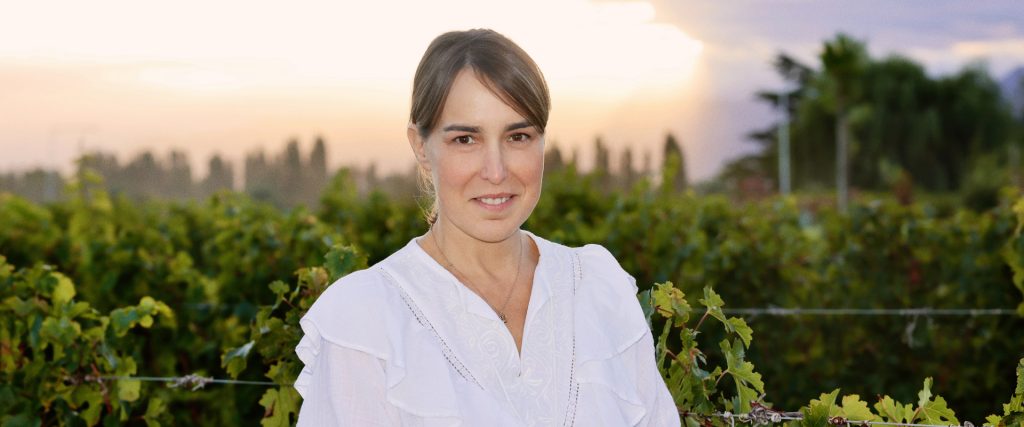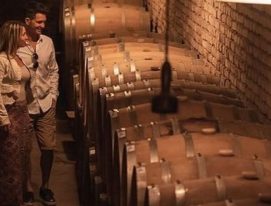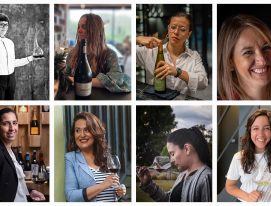On April 1, 2003, Marina Gayan became the first Master of Wine from Latin America and, to this day, is still the only one from Argentina.
The route that took her there is impressive: in her first year of preparation, she continued working in business strategy, wine styling and brands and also as Director of Exports at Catena Zapata.
By the time she finished her thesis, she had worked for the Australian business Hardys as the brand’s Marketing Manager in Europe. After Hardys was sold to the American company Constellation, she founded and led the marketing and sales department for their premium wineries.
She has acted as a consultant to wineries and private clients in different parts of the world, was head of the regional panel for Argentina at the Decanter Wine World Awards for four years, and wrote articles for the magazine Foco Sudamérica, among other professional achievements.
What does it mean to be a Master of Wine? “It’s a distinction awarded to someone who, through a series of very rigorous exams and tests, has demonstrated an extensive understanding of all the different aspects of wine. It involves having signed up to a strict code of conduct that ensures impeccable commercial behavior within the industry,” explains Marina Gayan.
Marina Gayan trained with the crème de la crème of the global viticultural industry. She spent 20 years living in London but in 2018 returned to Argentina, where she now provides advice to wineries from across the world and acts as a mentor to Argentinian candidates for the Master of Wine distinction.
In this conversation, we celebrate her twentieth anniversary as a Master of Wine and find out what she’s doing today.
Interview with Marina Gayan
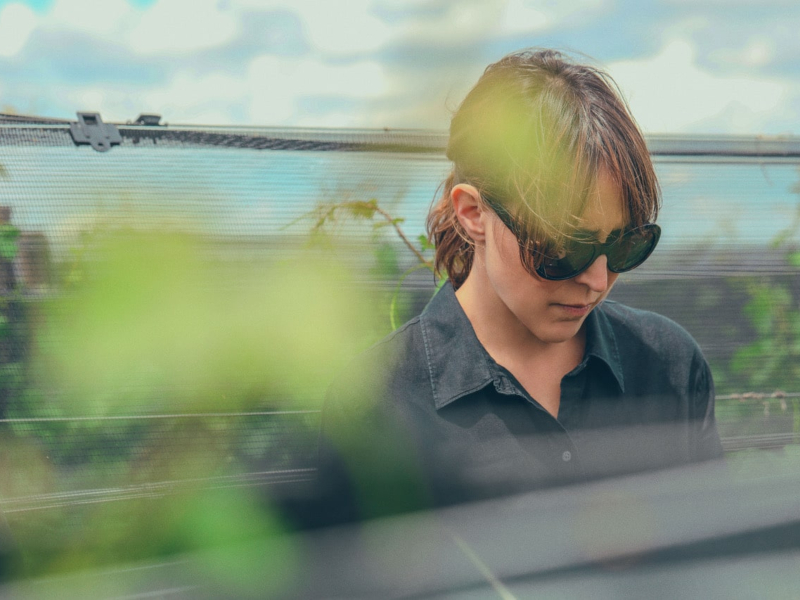
How did you first learn about MW and what inspired you to move to London to enroll in the program?
In the 90s, I started working in exports for Catena Zapata. I visited different markets and met professionals who knew more about wines from across the world than I did. I realized that I needed more professional training to be at their level. As I was going over the different options, some Bordelais friends from Château Talbot recommended the Institute of Masters of Wine: “If you want to be respected, to really learn and earn a qualification that means something in the world of wine, you need to be a Master of Wine.”
With the support of Nicolás Catena, I signed up in 1998 and because there weren’t any training programs in Argentina, I moved to London. It was a mixture of naivety, ignorance and an urge to improve myself. I didn’t know what it would involve in terms of studies and investment of time, or how few actually made it. But by the time I realized what I’d got myself into, it was too late!
Your final thesis was based on an analysis of Malbec’s potential in the United Kingdom.
I did some field work and interviewed viticultural professionals, journalists, sommeliers, buyers and restauranteurs to find out whether Malbec might become a competitive advantage in Argentina. I came to the conclusion that the variety could be for Argentina what Sauvignon Blanc is for New Zealand. That’s what we’re seeing in the British market, it’s very popular with consumers. Today, the United Kingdom is one of the main destinations for Argentine Malbec.
How much has your career changed since you passed your final exam?
Everything changed from the first day of my course in London. It provided a completely different, fascinating perspective on wine. I would never look at wine the same way again. The MW credentials speak for themselves and open a lot of doors. Everyone knows what it is to be an MW, the training behind it and the resilience and commitment to excellence required to achieve it. That inspires respect.
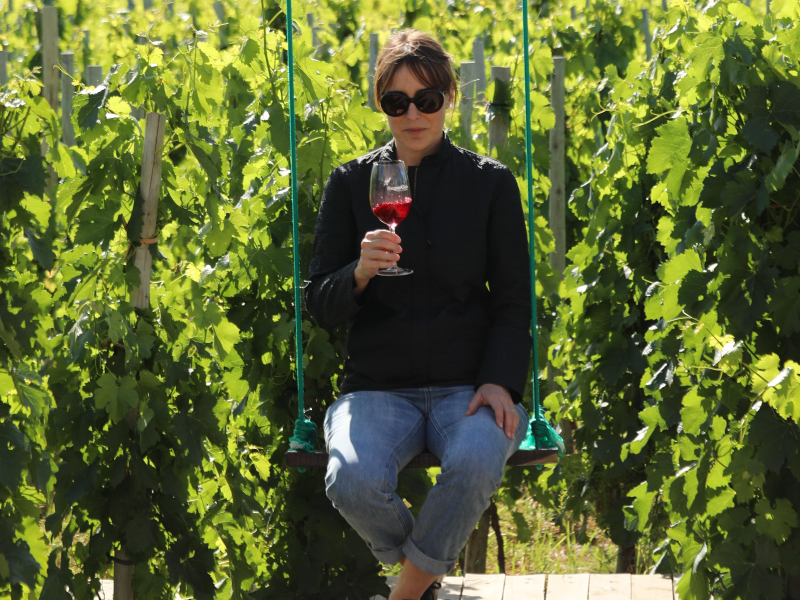
How useful is it for a country like Argentina to have local MWs?
Very. It gives the country a representative with a voice and a vote within one of the most prestigious environments in the global wine world. It’s just as useful for people from overseas looking to invest in Argentina as it is for the locals.
People are very interested in visiting Argentina. In partnership with Wines of Argentina, The Institute of Masters of Wine organized a visit for 40 MWs to the country and they’re planning to do it again.
It´s been 20 years and you’re still the only MW from Argentina, what do you think of that?
We’re underrepresented, there should be more. Argentina is one of the top five producers in the world. But it’s understandable given the difficulties with taking the program here. I had to move to London to train and since I returned, I’ve been doing everything I can to make it possible for people to study without having to leave the country.
In terms of gender, today there are 416 MWs in the world and over a third are women (149). The split between the newer MWs over the past ten years is almost half and half: 52% men and 48% women.
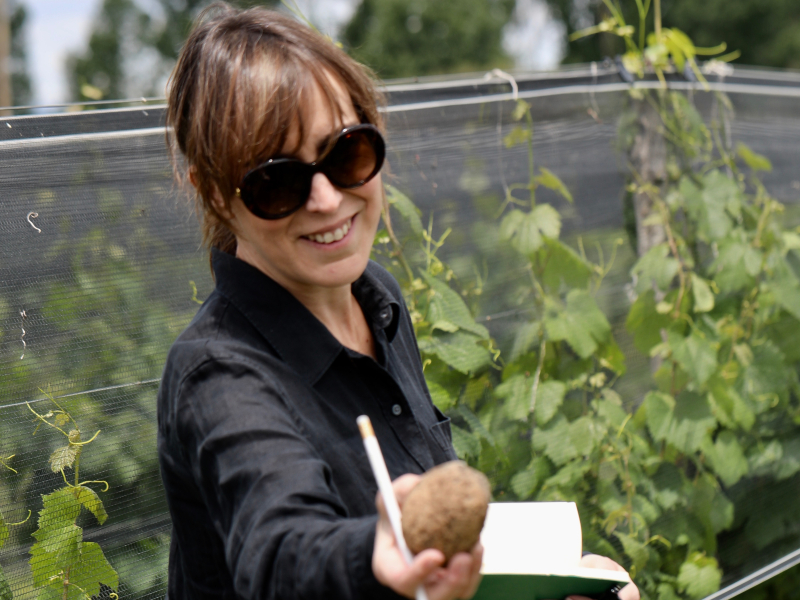
What are the challenges that candidates face and how do you help them to overcome them?
The main challenge is presented by the program itself, but in addition to that there’s the cost, the distance and most of all the lack of wines and tasting groups to train with. Ones that can be accepted and successful within the program. During the exam you could be presented with a wine from anywhere in the world; to pass it you need to have tasted hundreds of wines from different producers from all over and to understand them.
If local candidates are to overcome these challenges, much more is needed than I thought when I got here. We need funding to buy wines from overseas and get support to bring them into the country, tax free. I’ve organized “MW style” tastings with oenologists to raise funds and help buy the 600 bottles you need to train. With the help of Alberto Arizu we’ve won the support of the National Wine Institute to import samples for educational purposes, tax free.
As a member of the IMW I’ve been raising awareness about the difficulties of studying in countries like Argentina. We’re working on a series of measures to help facilitate the process: discounts on the wine, remote participation in seminars, etc.
As an MW, how do you work with the Argentine wine industry?
Argentina has changed incredibly over the past few decades and to promote that I am constantly visiting new regions and producers, tasting everything I can.
I also created a vehicle to gather funds for small NGOs so the industry can do its share (@vinoparaayudar) with wines specially curated and selected to provide the consumer with a new perspective. A lot of wineries have signed up, along with Tim Atkin MW, Alejandro Iglesias, Andrés Rosberg and WofA.
A little while ago, I returned to providing consultancy on strategic issues and wine styling and brand direction. My vision always takes into account wines from across the world. Coupled with my international experience of three decades, it allows me to make contributions in a wide variety of areas.

